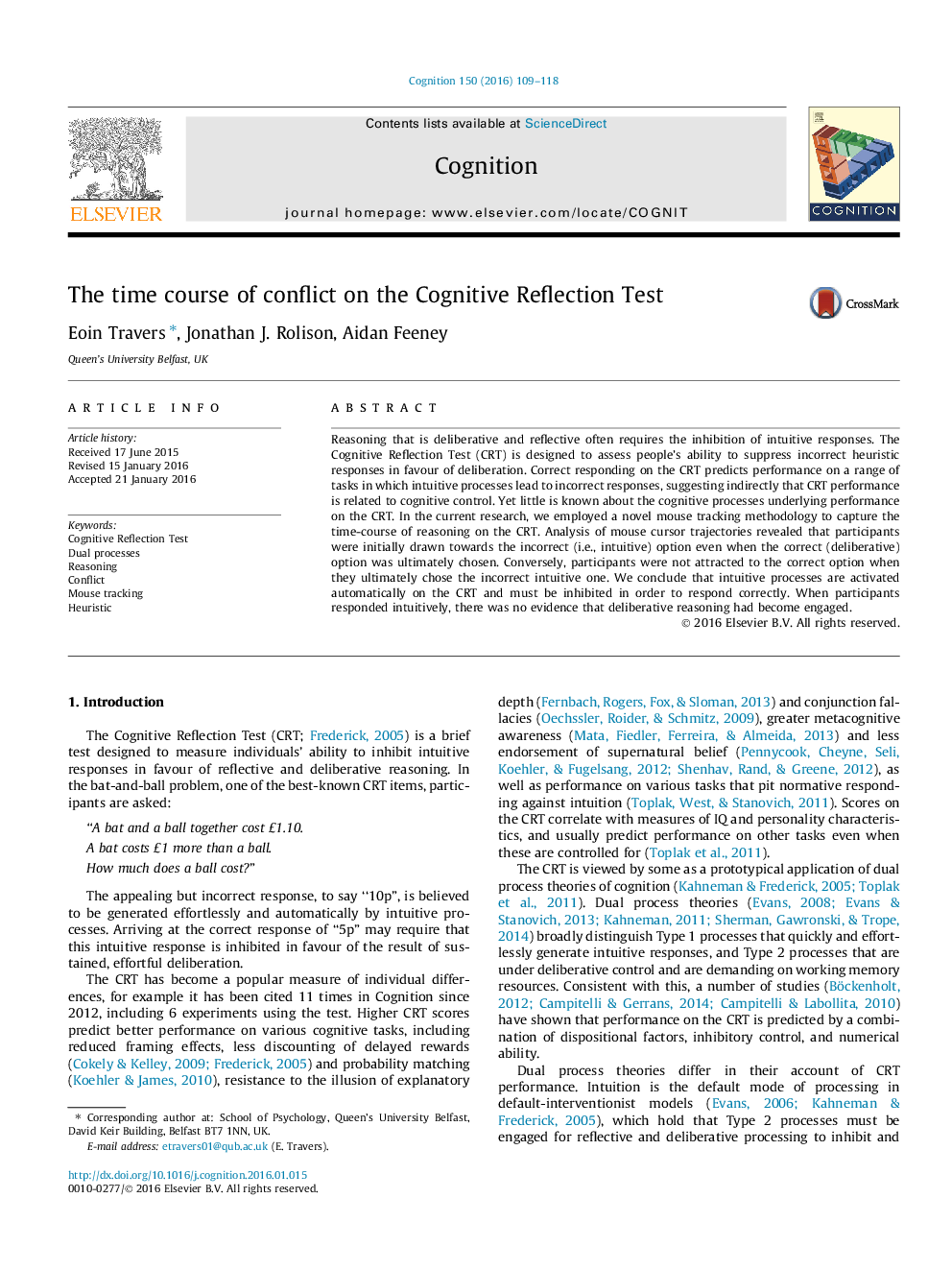| Article ID | Journal | Published Year | Pages | File Type |
|---|---|---|---|---|
| 7286229 | Cognition | 2016 | 10 Pages |
Abstract
Reasoning that is deliberative and reflective often requires the inhibition of intuitive responses. The Cognitive Reflection Test (CRT) is designed to assess people's ability to suppress incorrect heuristic responses in favour of deliberation. Correct responding on the CRT predicts performance on a range of tasks in which intuitive processes lead to incorrect responses, suggesting indirectly that CRT performance is related to cognitive control. Yet little is known about the cognitive processes underlying performance on the CRT. In the current research, we employed a novel mouse tracking methodology to capture the time-course of reasoning on the CRT. Analysis of mouse cursor trajectories revealed that participants were initially drawn towards the incorrect (i.e., intuitive) option even when the correct (deliberative) option was ultimately chosen. Conversely, participants were not attracted to the correct option when they ultimately chose the incorrect intuitive one. We conclude that intuitive processes are activated automatically on the CRT and must be inhibited in order to respond correctly. When participants responded intuitively, there was no evidence that deliberative reasoning had become engaged.
Related Topics
Life Sciences
Neuroscience
Cognitive Neuroscience
Authors
Eoin Travers, Jonathan J. Rolison, Aidan Feeney,
